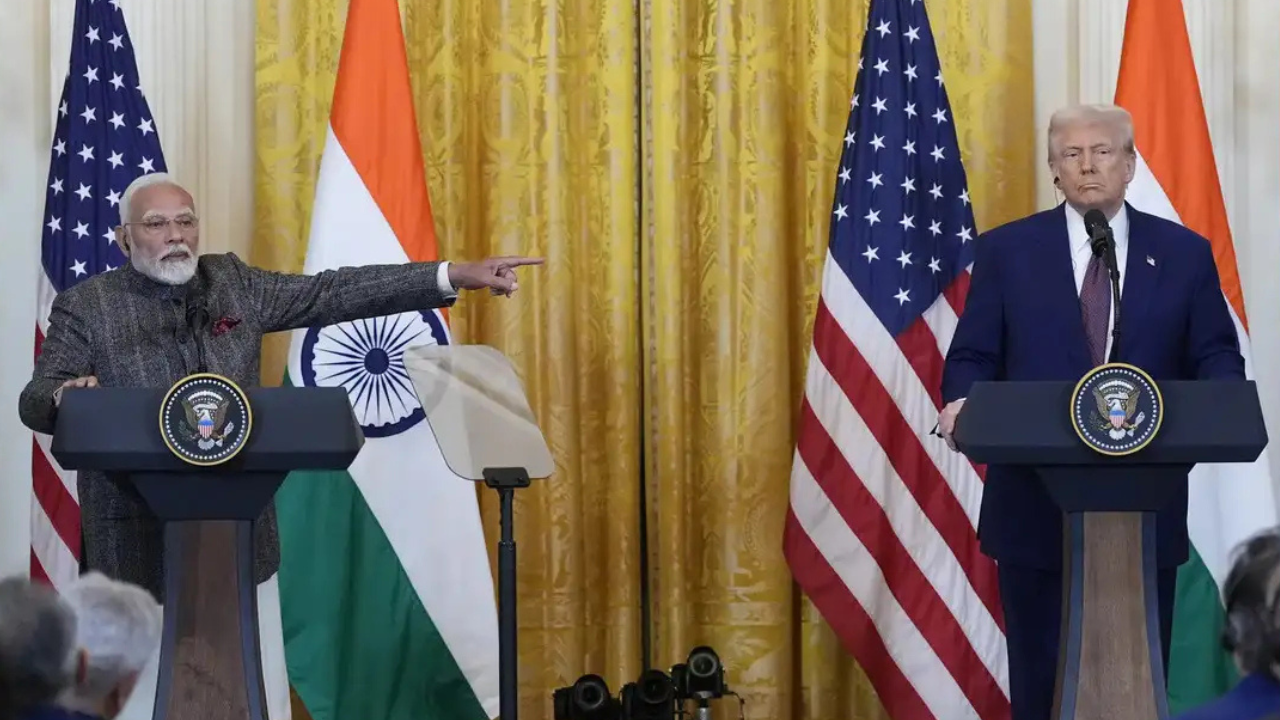
Prime Minister Narendra Modi speaks as US President Donald Trump listens during a news conference in the East Room of the White House in February this year (AP Photo)
Top former US officials have urged Washington to stop viewing India and Pakistan through the same strategic lens, arguing that the United States should abandon any “India–Pakistan policy” and instead treat its ties with New Delhi and Islamabad on separate terms. In a joint op-ed published in Foreign Affairs, former National Security Advisor Jake Sullivan and ex-deputy secretary of state Kurt Campbell argued that the US policy has tilted towards India in recent years, and there is a reason for that.
“Washington must also refrain from hyphenating its relations with India and Pakistan: there should be no ‘India-Pakistan’ policy. US diplomacy in recent years has been heavily weighted toward New Delhi for a reason. The United States has enduring interests in Pakistan in combating terrorism and limiting nuclear and missile proliferation, but these pale in significance to Washington’s multifaceted and consequential interests regarding India’s future,” Sullivan and Campbell wrote.
‘Regrettable downturn in ties’: US officials
Jake Sullivan and Kurt Campbell noted that Donald Trump’s tariffs, India’s Russian oil purchases, and renewed tensions between the US and India regarding Pakistan have “caused a rapid and regrettable downturn” in the New Delhi-Washington relationship, “replete with public insults and recriminations”.
According to the ex-officials, it was “prudent to remember why India has emerged over the last generation as one of the United States’ most important global partners.” They argued that if the current trajectory persists, Washington could lose a key strategic partner.
“As [Prime Minister Narendra] Modi’s chummy appearance over the weekend with Chinese President Xi Jinping and Russian President Vladimir Putin made clear, the United States could end up driving India directly into its adversaries’ arms,” the op-ed said, referring to the three global leaders’ meeting at the recently held Shanghai Cooperation Organisation (SCO) Summit in Tianjin.
Donald Trump’s additional 25 per cent tariffs on Indian imports took effect on Wednesday, August 27. Indian goods now face upto 50 per cent tariffs in the United States. New Delhi has made it clear that it will act in its national interest and factor in the global market situation when it comes to its energy purchases.